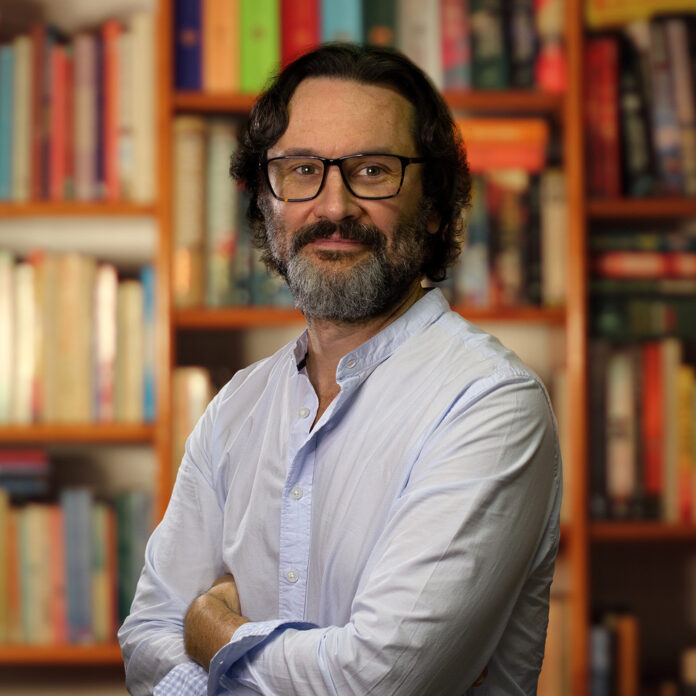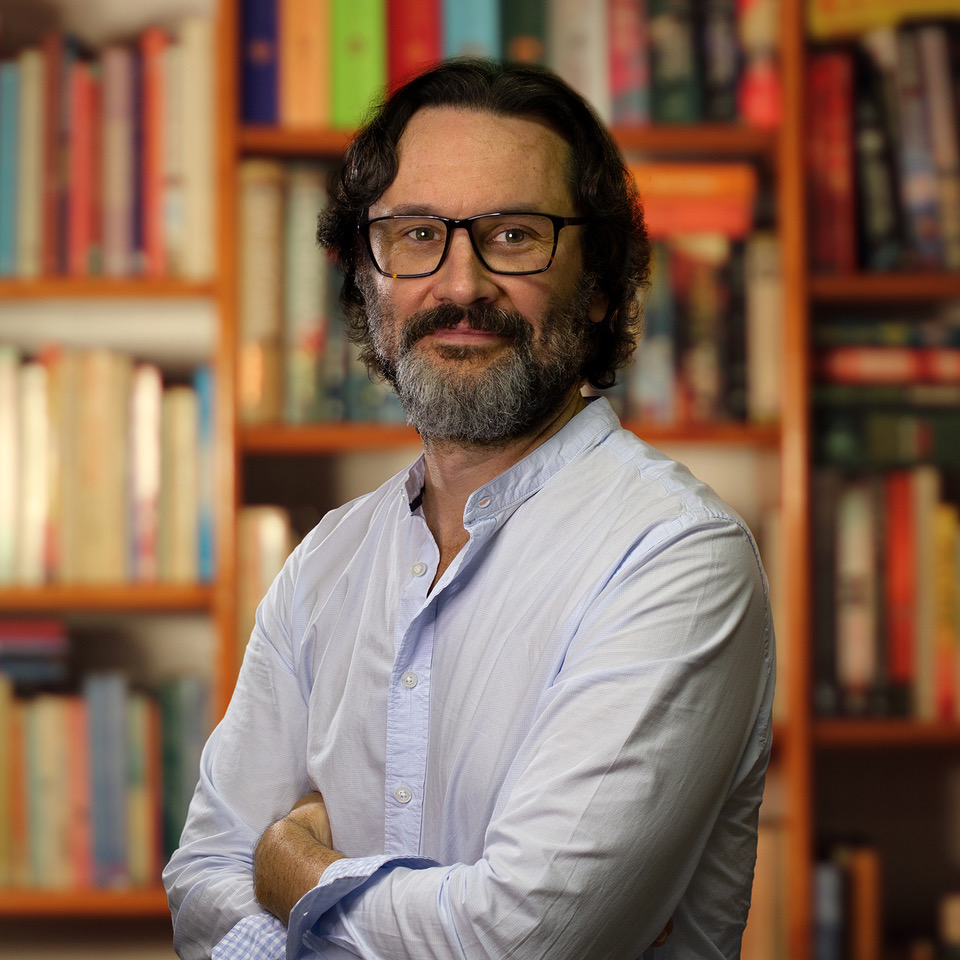
Summer had come and gone, and the extreme chill of winter had skipped right past autumn. Zen stood at his balcony window looking out at the grey city skyline.
He had used his last government voucher of the month two minutes ago to place a grocery order. He would have to apply to the local food bank to replenish some of the basics. If they had any left. But that was a task for later. Right now, he would wait to see what the day held for him, if anything.
Drone-delivered meant he hadn’t gone out or seen anyone for the past few months when stricter lockdown measures were implemented around the wider metro area. He didn’t mind though. It was better indoors away from the unbearable cold in the city since the seas encroached and brought the extremes. He didn’t have a sea view, even from this tower block on the top of the Ridge, but he knew the stadium arches would be peaking out of the rough Durban waters below the rising sun. Divers willing to risk the riptides and erratic currents coming from Mozambique had made sure the structure, submerged five years ago when the levels had risen by twenty meters, had remained untouched by demolition crews. A new reef, they had said.
But, like all outdoor movement, diving was prohibited during lockdown. Everything was prohibited if it meant going outside your home or living quarters. Home. Cell.
Two major viruses had made cities rally to get their people indoors, safe but with at least most able to work remotely and survive. Health issues had strained hospitals. Psychological issues had quadrupled. People had died from malnutrition, psychosis, and the viruses.
A strain of parvovirus B19 had triggered a deadly aplastic anaemia pandemic in the youth, with the first signs of red and purple spots, bruising and bleeding mostly ignored by the majority of governments of Oceania. The lack of blood bank supplies, let alone matching bone marrow transplants, made it near impossible to stem the red wave of infections.
Zen felt alone, not just because of the isolation but because of the contacts missing. People missing. From his life. It was difficult to imagine anything before this. Who was it he had been in contact with that he felt the loss now? His parents? His sister? He had been absent to those who should have been dear to him. He hadn’t really seen them when they were alive. Really seen them.
Did dead people see him?
Here Zen was: a survivor. But, for how much longer? And for how much longer could he, or anyone else, stand it?
He turned to look at the flat filtration unit moulded into the ceiling in the middle of the apartment, and then checked the air controller on his mobile app. A few paces into the room and he was standing under the gentle hum of the device imagining the fresh air circulating around him. The apartment block’s central purification, air-conditioning, ventilation – whatever you thought it was – had been upgraded along with the rest of the city. Roughshod work by whoever it was who got the cheap-ass tender. Thankfully, the metro grid powered the system because his pay-as-you-go electricity had been off since before May, with winter right on its heels. But at least his solar chargers lined up on the windowsill kept his devices powered, otherwise there would be no connectivity with the outside world and no possibility of being able to work. If work ever came.
How many “Free Power” online petitions had he signed in the past and still it wasn’t accessible to the masses? Wind turbines and wave farms lined the Indian Ocean horizon as far as the eye could see but surely getting a light on in the city was an expense not a luxury.
Mounting tensions festering in private chats had spilled out into the mainstream. Threats of protest actions seemed more than couch-jockeying and anonymous vitriol. He hoped it was. He needed it to be. Being out on the streets, screaming at the heavens, despite any apparent viruses was what was needed to vent and be seen. His skin warmed and tingled. It was the boiling rage and frustration. A nagging thought rose to the surface – or was it the virus?
His phone beeped. Delivery.
He didn’t need to find or put on his mask. Day-to-day, in the confines of his apartment like now, it was always around his neck, or, firmly in place around his nose and mouth. The mask was a part of him, like his underwear. Okay, maybe not his underwear, which he hadn’t worn for the past six months. For what? For whom?
He walked back to the balcony and slid open the glass door as the drone took off, over the hazy city, and back to its depot. The fresh smell of drone-sprayed alcohol on the outer cover of recyclable paper meant he was clear to handle the package.
He picked up the wrapped box, glanced around for any signs of human activity on the protruding balconies of his floor. Nothing.
Zen stepped back inside and closed the door; the sound of the air pressure resetting hissed in his ears as he mentally prepared himself to unbox his limited items.
He tripped over the dead, roving vacuum unit on the floor, and through the small, gloomy single bedroom cum lounge. The entire apartment, one rectangular space, consisted of a shower, toilet, and basin, behind a drywall to his right; while the kitchen at the far end, near the front door which remained unopened for the past months, made up the remaining three-square metre area.
He couldn’t remember when he last folded his bed up let alone changed the sheets. He walked past the only couch and scraped the metal kitchen chair away from the foldout table and sat down to check his mobile.
He snapped a photo of the box and typed. “Can’t take this much longer,” he posted on his social media.
No one really responded to, saw, or liked, any of his posts but he did them anyway. “Visibility” was the word. Visibility?
This past year was a lesson in invisibility on steroids. Like most of the citizens in his neighbourhood he usually tried to be as invisible as possible in public, but on social media it was all about being visible. Relevant.
Stay irrelevant IRL, but relevant online? Okay.
No work. No income. No socialising. He hadn’t called a mate in weeks. Okay, maybe months. Everyone was online rather. Posting, commenting, chatting, bitching, and complaining.
Zen tore at the box wrapper.
***
The afternoon sun was low, and the heat fading fast. It was like the windows and the walls barely had time to absorb anything of comfort.
His phone on the arm of the couch bleeped. He set aside his tablet and picked it up.
A like on his post. Buhle. Hadn’t heard from her in a while.
All his connections seemed to be coping with the isolation, no hassles with work, and relationships all tip-fucking-top. But here was Zenzele unable to cope in lockdown. He usually thrived on working all hours, getting shit done to deadline, work through the night and sleep in the day if need be. Catch friends later or the next weekend or the next pub-crawl. Take it day by day. Live in the moment.
Live in the moment!
Bleep. “You’ll get through this! Hang in there, mnganam!” Three thumbs-up emojis.
Whatever, Alex. The fuck do you know?
His phone vibrated: low battery.
Bleep. “There’s been riots in Wentworth the past week that haven’t been reported in the media.” A comment posted by a @FreeMzansi.
He hadn’t heard about that. Not that he checked too much of the dodgy news on a regular basis. And he didn’t know any @FreeMzansis or any friends by that handle, but Zen had posted publicly. He checked their profile. A couple of photos of Durban, the ruins down the old Berea Road in black and white. Hashtagged Release Us. Reposts about human rights.
Then, another comment from @FreeMzansi appeared: “The virus is petering out and citizens are demanding to be released from lockdown.”
Zen hit reply. “Really?”
The response came quickly. “Yeah, Zenzele. Mainstream media’s not covering it. But it’s happening. It’s nearly over if it wasn’t already.”
“Cool,” he typed back.
“Time to get out there and get our country back to work.”
Zen looked up through the balcony windows, imagining being outside, freely walking the streets. Walking. Running.
Hell yes, please. He gave @FreeMzansi’s comment a thumbs up.
Sucked into the app, he scrolled through his timeline. The same old shit. People complaining about their rights being taken away. Conspiracy theories about the origins. Vaccine developments or lack thereof. Vaccine conspiracies.
“Do you know anyone who has actually died from going outside?” asked @FreeMzansi.
An odd question but Zen gave it a thought and then wrote, “One of my friend’s relatives.”
“So, no one you know directly?”
That’s pretty close to home. As close to home as you’d want.
“No,” Zen typed back. “But still…”
“It’s all bullshit.”
***
Laughter filtered around the apartment block. Vibrations through the concrete framework meant it was music thrumming somehow. Some thrived on the confines. They used their tech to connect and commune and entertain. He couldn’t face it. It was all bullshit.
Had they even felt loss? Or was this some warped way of dealing with it? Blocking it out with the noises of distraction?
Zen had spent the last few hours into the evening deep-diving on blogs and chat sites. His head was spinning. Connectivity on this scale gave everyone an opinion they thought was worth sharing. His eyes were dry and hot from too much staring, unblinking, at his tablet and mobile screens.
The noise from the other apartments was grating his nerves. Too many people in a small space. Another remote party. Is that what we are? A social species socialising separately?
Migrants had moved south, away from the stifling heat of the equatorial zones, and seemed to thrive in this city. The humidity of the summers was now unbearable, like a thick, heavy blanket you could never get away from. And that was indoors. You were lucky if you could afford the extra cost for stronger A/C cooling because blasting it harder simply disturbed the epidermis layers of dust in the apartment. And you knew it was only your own filth catching the morning sun because the air filtration system kept all the dust, viruses, and pollution particles out.
He tossed his tablet on the seat next to him and checked his mobile feed. A couple more likes. Emojis. Where was the communication?
He stared at a high-five emoji. The open palm symbol. A hand. A digital hand high-fiving in remote space. High-five me instead. Shake me. Rattle me. Slap me awake.
Touch me.
He checked his job sites. Nothing. No new posts or prospects. Nothing in his in-box other than the usual spam and daily astrology.
What the hell is the point?
He swiped through his timeline. Nothing of real interest. No one he knew was infected. No one he knew directly had died in the last twenty-four hours.
Bleep.
“We are organising a group to gather at the old Saint Augustine’s Hospital site,” wrote @FreeMzansi.
“For?” asked Zen.
“Unity. Showing the government we aren’t falling for their bullshit anymore.”
Zen stood and paced the small room. That was a bit nuts. Who the hell would go outside and risk infection?
“Nah. I’m good,” he wrote back.
“And what’s the worst that can happen?” came the response.
“People die,” Zen snorted as he typed.
“Is that the worst that can happen?”
What the hell? He dropped his mobile on the couch and stood at the balcony window. The lights of the city looked warm and inviting. People were out there. His people were out there.
His rapid breathing frosted his view. With his forefinger he drew a circle in the moisture, followed by two dots and a crescent underneath them. What is the worst that can happen?
I live another day. Like this.
Zen grabbed his jacket and scarf from under his bed, checked for his gloves in the front pocket and headed to the front door. It took some effort, but he scraped the door open, its hinges squealing their protests, stepped outside and closed the door behind him.
The apartment was quiet.
The mobile on the couch bleeped.
This account has been identified as a bot and suspended. For more information and safety tips, click here. #StaySafe. #StayHome.

